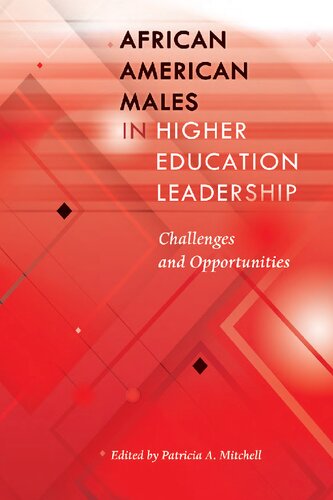

Most ebook files are in PDF format, so you can easily read them using various software such as Foxit Reader or directly on the Google Chrome browser.
Some ebook files are released by publishers in other formats such as .awz, .mobi, .epub, .fb2, etc. You may need to install specific software to read these formats on mobile/PC, such as Calibre.
Please read the tutorial at this link. https://ebooknice.com/page/post?id=faq
We offer FREE conversion to the popular formats you request; however, this may take some time. Therefore, right after payment, please email us, and we will try to provide the service as quickly as possible.
For some exceptional file formats or broken links (if any), please refrain from opening any disputes. Instead, email us first, and we will try to assist within a maximum of 6 hours.
EbookNice Team

Status:
Available5.0
28 reviewsAfrican American Males in Higher Education Leadership: Challenges and Opportunities presents narratives from thirteen African American males working in higher education leadership. Their narratives describe the barriers and roadblocks that continue to impede them while climbing the ivory tower ladder to leadership. This book highlights a number of topics relevant to the experiences of Black males on what it means to hold a leadership position at a historically black college and at a predominately white institution. This is an opportunity to hear the voices of African American males and to look at leadership through their lens. What have been some of the challenges and opportunities they have faced during their journey in higher education? What specific strategies helped them cope with barriers impeding their climb to a leadership position in higher education? What specific programs make a difference for emerging Black male leaders? Did they have a mentor or did they feel isolated during their journey? How are they feeling now? What tips can be passed down to our next generation of Black leaders? These narratives provide inspiration for all African American men aspiring to advance their careers in higher education. Hopefully, African American males will find these narratives useful as they prepare to enter the landscape of higher education leadership and avoid some of the pitfalls discussed in the book.